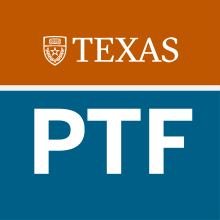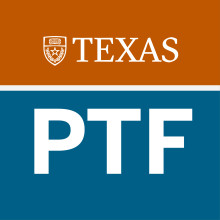Individual Fellow Initiatives

Common Ground: Strategies for Student Achievement in the Post-COVID Era
This initiative addresses the challenge of balancing student accomplishment with the necessary accommodations for student success, particularly in the post-COVID era. The project will collect empirical data from students, faculty, and advisors at the Moody College of Communication to explore how to maintain high academic standards while incorporating essential accommodations for students facing challenges such as mental health issues, food insecurity, and housing instability.

Does Increasing Course Depth While Reducing Breadth Improve Learning in College Students?
Student-centered learning strategies have been effectively used to increase academic performance and learning in students. Educators have hypothesized that course content reduction can also improve student learning. However, support for this idea is lacking. In the present project, I am planning to assess whether a content reduction strategy increases the academic performance of upper-division stem students at the University of Texas-Austin.

Compassionate Pedagogy and Experiential Learning
The primary goal of this project is to enhance student engagement and participation in the learning environment, especially those who have may have been marginalized by conventional approaches to teaching. This project aims to support, encourage, and train faculty to incorporate compassionate pedagogy (CP) and experiential learning (EL) into their teaching, with the goal of promoting student connection and faculty creativity.

Artful Learning: Integrating Art into Teaching Practice
This project aims to transform academic instruction by integrating art into the classroom. We believe that art can make subjects more engaging and help students connect with the material on a deeper level. By integrating diverse forms of art—such as virtual art, music, film, theater, and more—into the curriculum, we aim to create a more interactive and stimulating learning environment while also supporting students' mental health through therapeutic art sessions.

Implementing Computational Modules into the Materials Science and Engineering Undergraduate and Graduate Curricula
The development of increasingly powerful computational resources has made computational competencies new core forms of literacy that should be formed as part of basic education across all STEM fields.

QR Learning for addressing social and racial injustice
The current proposal envisions developing alternative pedagogical materials for the “Measuring Racial Inequality” course, written in plain language and accessible to students from social sciences/humanities and underserved communities and families.

Disability Justice as Pedagogical Practice
Within social work curriculum, the topic of disability is either explicitly absent or medicalized. The lack of a rich understanding of disability as a cultural experience that intersects with other cultural experiences is concerning given our ethical guidelines of cultural competence and equity. Additionally, not only are students excluded via this omission, but so are faculty, staff, and social workers working in the field. Approximately a quarter of the population identifies as having a disability, yet our curriculum barely acknowledges their experiences.

Building Rigorously Compassionate Syllabi: Fostering Individual Accountability and Community Care
Our project seeks to revitalize the syllabus document as a tool of inclusion. We are interested in making visible the “hidden curriculum” with which students often struggle. The syllabus language, grading and attendance policies, communication and assignment fulfillment methods, course calendar flexibility, course material formats – these can all contribute to developing personal accountability and investment in community.

Strengthening the Sustainability Studies Degree
Sustainability Studies graduated its first sizeable cohort in 2022, and the program has yet to undergo a comprehensive review. Conversations with students revealed their desire for better access to the professional field of sustainability across the sectors of non-profit, government, and business. This is an area that the current structure of the degree does not adequately address. To address these concerns, I am proposing a three-pronged approach. My first initiative is to build a database of internships across the three sectors mentioned above.

Early Exposure to Data Skills in Introductory Biology Sequence
Biology continues to be seen as a field for science-interested, but math-disinterested students. However, due to the surge in data use in all biology careers, and the focus in research on sequence data, there is a strong need for data skill development in biology degree programs. Math anxiety poses a specific challenge for biology education. A suggestion to overcome this, is an early introduction to data skills in the two-course sequence of Introductory Biology.

Offering Real-World Opportunities for Students Enrolled in Statistics and Data Science Undergraduate Research
The primary goal of this community-based service project is to provide experiential learning opportunities for undergraduates interested in statistics and data sciences while supporting the broader Austin-area community. Coordinating with local organizations, students enrolled in some of our SDS courses are gaining hands-on experience in data analysis while exploring authentic contexts. This innovative and collaborative effort provides a community-based model that allows students and local organizations to co-develop and answer real-world research questions.

Inclusive STEM Communication for Engineering Students
The challenges facing modern engineers are more complex than ever. Current engineering issues such as
algorithmic bias, data security and privacy, and sustainability do not only require technically skilled engineers,
but also engineers who are conscious about structural inequities and biases.

COLA Interdisciplinary Program Instructors' Community of Practice
There are two main issues that this project hopes to address. The first is the student and instructor malaise that
has been noticed by educators and administrators across our whole campus since the return to face-to-face

Gone (Back) To Texas: A Model For Alumni-led Experiential Learning
As the campus community enters a new post-pandemic era, it is clear that one of the most urgent needs following 2+ years of remote and hybrid learning is to create poignant, relevant contexts for pursuing immersive experiential learning. As universities reckon with the challenge of continuing to evolve their value propositions to meet student demand for more industry-relevant experiences, there is an opportunity to innovate how we design and deliver unique pedagogical experiences that connect more deeply with their educational and professional journey.

The “Social/Wellness Module:” Providing Space for Wellbeing and Social Learning for Incoming UT Students
My project addresses the lack of built-in social/wellness-oriented interactions in introductory courses for

Digital Research Apprenticeship: Projects For Intersectional Justice
Research and scholarship in Digital Humanities applies technology to humanities questions and subjects technology

Internship in the Media Industries
Internships have increasingly become a critical step in the college-to-career transition in the media industries and beyond.

Peer Mentor Leadership Project
The Peer Mentor Leadership Project (PMLP) empowers undergraduate students to explore and develop their leadership styles. Participants design and implement mentoring and leadership projects that align with their goals and values, while assessing the impact of their work. The program emphasizes introspection, reflection, and professional growth, helping students strengthen their resumes and leadership skills.

Making New Scientists: Supporting the Training of Incoming Science Majors
Traditional science degree programs concentrate primarily on content and are not known for preparing their graduates with other skills needed for scientific careers.

Race, Democracy, and Global Social Justice: How Studying Inequality and Vulnerability can Transform the World
My initiative will achieve better learning outcomes in undergraduate and graduate students in History and the LBJ School by examining the intersection of history and contemporary policy, specifically its disparate impact on communities of color. Currently, departments, centers, faculty and students work independently of one another and lack valuable opportunities to collaborate. Genuine collaboration has evolved into a rare and difficult concept.

Mentored Research Learning: An Evaluation
Mentored research defies the traditional higher education approach, which separates research and teaching into distinct activities. Instead, mentored research fully integrates faculty research activities and student learning. In this approach, researchers do not simply carry out their research in isolation with a paid set of PhD-level research assistants. Further, students do not simply learn from in-class lectures or more traditional out-of-classroom experiences, such as study abroad.

Pharmacy Practice Lab Redesign
The College of Pharmacy is embarking on one of the biggest curricular revisions in the past decade by creating a Pharmacy Practice Lab sequence spanning all six semesters of our didactic program. The course series will combine content from seven existing courses in order to decrease redundancy and duplication to create increased alignment and reinforcement. Rather than students learning content within “the silo” of a single course, students will be required to retain and apply their knowledge and skills throughout the entire curriculum.

Valuing Humanities Education at the University of Texas
For some time now the humanities have been “in crisis,” but the crisis is becoming acute: majors in nearly all humanities fields have been sharply declining, enrollments are down, hiring of tenure-track faculty is down, and, at some colleges and universities across the United States, whole departments are being eliminated. Here at the University of Texas, majors that are growing seem to be ones that promise a literal return on investment (invest money in a degree and get that money back, in the form of a well-paying job upon graduation) or at least suggest an obvious and practical use.

Building Information Modeling (BIM) as a Proxy for Project-Based Learning Integration across the Architectural Engineering Undergraduate Curriculum
The University of Texas at Austin’s Civil, Architectural and Environmental Engineering (CAEE) department has taken several steps towards improving the preparation of Architectural Engineering students with respect to modern engineering tools, including the computing tools commonly used in engineering practice.

Difficult Dialogues Faculty Learning Community
(Project completed 2021) Since its inception at UT in 2006, the Difficult Dialogues (DD) program has worked with over 40 faculty in 8 colleges or schools to develop Difficult Dialogue signature courses, i.e., introductory UGS courses that promote respectful and productive dialogue about difficult and controversial social issues, including race and ethnicity, gender and sexuality, religion, human rights, immigration, evolution, climate change and sustainability, and illness and mortality.

